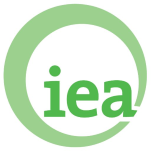 The International Energy Agency (IEA) have just released its second report concerning Iraq’s energy sector. The report, an update to the 2012 report, has been published at a crucial time for Iraq with Islamic State (IS) defeated and significant efforts required to repair damaged and destroyed energy infrastructure.
The International Energy Agency (IEA) have just released its second report concerning Iraq’s energy sector. The report, an update to the 2012 report, has been published at a crucial time for Iraq with Islamic State (IS) defeated and significant efforts required to repair damaged and destroyed energy infrastructure.
- Iraq needs to develop its domestic energy infrastructure, in particular, those in the electricity sector;
- Electricity demand is set to double by 2030, however, Iraq does not produce enough electricity to satisfy demand and the gap is widening;
- The IEA has identified short-term measures to produce the most immediate pressures. These include the rapid deployment of mobile power units; upgrading of some existing power plants; network maintenance, targeting a small number of high-impact upgrades; and the enforcement of tariffs for all neighbourhood generations;
- Medium-term measures include network maintenance and upgrades; refurbish existing power plants; increase tariff collection; and reform grid tariffs to incentivise efficient use of electricity;
- There is a huge potential to cut network losses, which are among the highest in the world. IEA have estimated that reducing these losses by half would help to increase the available capacity by one-third;
- Diversification and reform of the economy away from oil and gas remains a long-term challenge;
- Iraq is the fifth largest oil and gas producer in the world, however, further growth can be facilitated by the Iraqi authorities: ensuring sufficient water for injection; attracting foreign capital; and a conducive political and security environment; and
- Iraq needs to take advantage of its potential renewable power generation and allow the full implementation of gas flaring reduction projects. This would increase power generation, reduce costly imports, free up oil for export and allow for expansion of Iraq’s petrochemical industry.
The report can be downloaded from the IEA website:
EAME has been active in Iraq since 2010 and has been has recently undertaken Environmental and Social Due Diligence (ESDD) audits and Environmental and Social Impact Assessment (ESIA), on behalf of Export Credit Agencies (ECAs), for a series of substations across Iraq as well as a temporary power station outside of Basra.





